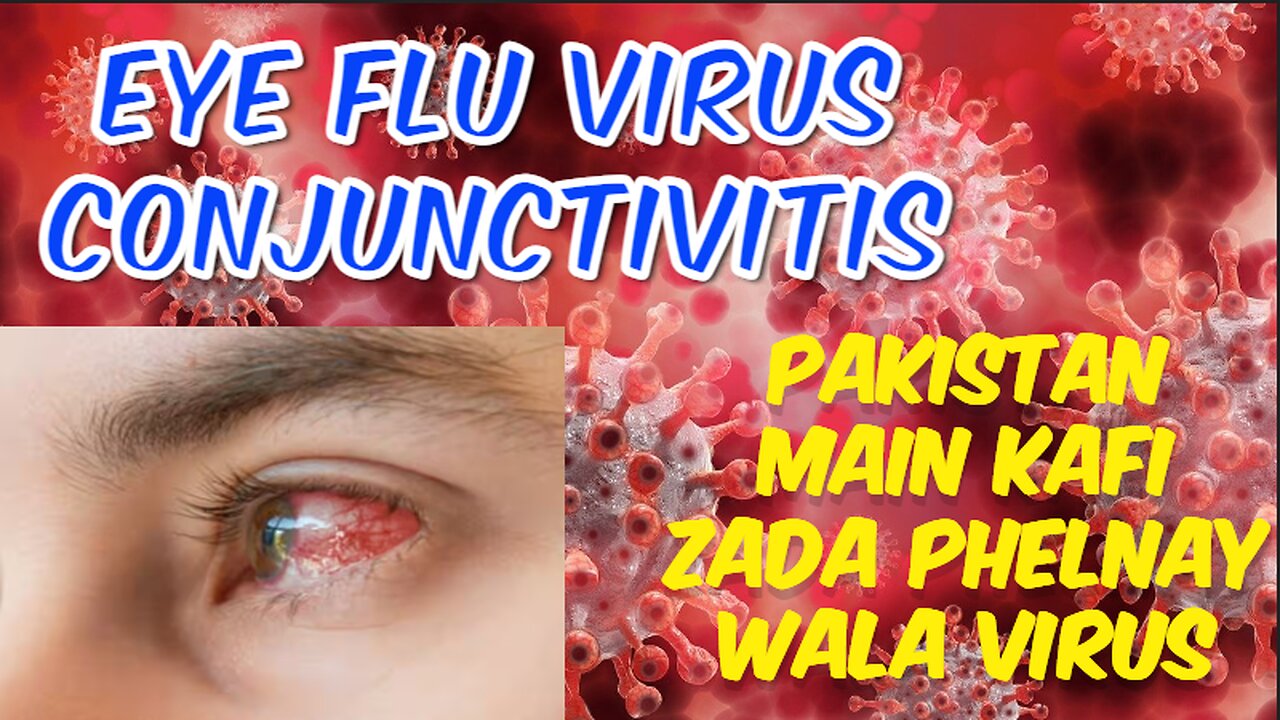Premium Only Content

Eye Conjunctivitis and Treatment
Conjunctivitis, often referred to as "pink eye," is an inflammation or infection of the conjunctiva, which is the thin, transparent layer of tissue that covers the white part of the eye (sclera) and lines the inside of the eyelids. This condition can be caused by various factors, including:
Bacterial Infection: Bacterial conjunctivitis is usually caused by Staphylococcus aureus, Streptococcus pneumoniae, or Haemophilus influenzae. It often results in thick discharge from the eye, which can cause the eyelids to stick together.
Viral Infection: Viral conjunctivitis is commonly caused by adenoviruses, which are the same viruses responsible for the common cold. It tends to be highly contagious and can cause redness, tearing, and a watery discharge.
Allergies: Allergic conjunctivitis occurs due to allergens such as pollen, dust, pet dander, or certain irritants. It typically involves itching, redness, and watery discharge in both eyes.
Irritants: Exposure to irritants like smoke, chemicals, or foreign bodies can lead to irritation and redness of the eyes.
The symptoms of conjunctivitis can vary depending on the cause but often include:
Redness of the eyes
Eye discharge (clear, white, yellow, or green)
Itching or burning sensation
Tearing
Sensitivity to light
Gritty feeling in the eyes
Swollen eyelids
Treatment for conjunctivitis depends on its cause:
Bacterial Conjunctivitis: Typically treated with antibiotic eye drops or ointment prescribed by a healthcare professional. It's important to complete the full course of antibiotics, even if symptoms improve.
Viral Conjunctivitis: Usually resolves on its own within a week or two. Antiviral medications may be prescribed in severe cases, but the mainstay of treatment is supportive care, such as using artificial tears and maintaining good hygiene to prevent spreading the infection.
Allergic Conjunctivitis: Managed by avoiding allergens when possible and using antihistamine eye drops or oral antihistamines to alleviate symptoms.
Irritant Conjunctivitis: The best approach is to identify and avoid the irritant. Rinse the eyes with saline solution or artificial tears to flush out irritants.
If you suspect you have conjunctivitis or have any eye-related symptoms, it's essential to consult a healthcare professional or eye specialist for an accurate diagnosis and appropriate treatment. Additionally, practice good hygiene, such as frequent handwashing and avoiding touching your eyes, to prevent the spread of infectious conjunctivitis to others.
-
 LIVE
LIVE
TimcastIRL
2 hours agoTrump To Impose 104% TARIFF On China At Midnight In NUCLEAR BOMB On Global Trade | Timcast IRL
38,621 watching -
 1:54:27
1:54:27
Glenn Greenwald
4 hours agoAs Tariffs Dominate News, Trump and Netanyahu Make Increasingly Militaristic Threats; Plus: Mixed Supreme Court Ruling on Deportation Powers | SYSTEM UPDATE #435
92.1K47 -
 1:39
1:39
Stephen Gardner
5 hours ago🚨BREAKING: Karoline Leavitt MAKES STUNNING announcement about Trump's Assassin!
4.17K4 -
 LIVE
LIVE
Producer Michael
7 hours agoI WAS ROBBED IN MY NEW HOUSE!
247 watching -
 LIVE
LIVE
Slightly Offensive
1 hour ago $1.65 earnedShould THEY Be Able to Use SELF-CHECKOUT? | Guest: Hermes
807 watching -
 LIVE
LIVE
Adam Does Movies
8 hours agoLet's Talk Movies! Ask Me Anything - LIVE!
277 watching -
 LIVE
LIVE
Joker Effect
38 minutes agoRumble is about to get a new genre!! Are you ready to take it on? Time to fight fire with fire!
664 watching -
 UPCOMING
UPCOMING
AlaskanBallistics
10 hours agoI love this Gun PodCast #25
49 -
 LIVE
LIVE
Anthony Rogers
6 days agoEpisode 360 - Document Leaks
55 watching -
 LIVE
LIVE
Spartan (Pro Halo esports Player)
6 hours agoPro Halo Player
43 watching